These diet and lifestyle tips will ease your joint pain from rheumatism and inflammation.
If you suffer from joint pain and joint stiffness, you are not alone. From 50 at the latest, almost every woman and man has experienced these symptoms from time to time. But if the joint pain and stiffness persists, it could mean you have arthritis, aka rheumatism.
In Germany alone, around 1.5 million people suffer from arthritis aka rheumatism, plus around 15,000 children. One of them is the son of Ogaenic’s co-founder, Suse Leifer, who has since worked extensively on how to naturally manage this disease in everyday life.
Science shows that your diet, supplemented with certain supplements, can make a difference in your health and well-being. You can learn more about it in this article.
What is rheumatism?
Like diabetes or multiple sclerosis, rheumatism is one of the major autoimmune diseases of our time. It is an inflammatory disease associated with flowing, tearing and pulling pain, swelling, hyperthermia and restriction of joint movement. In this process, the cells of the immune defense attack the body’s own tissue. This happens in spurts, each of which can last days, weeks or months.
This reaction of the defense system at the joints and tendon sheaths leads to joint inflammation and effusion. Without treatment, the disease episodes continue throughout life until the joints are completely destroyed.
It’s especially insidious in children. When a joint is inflamed, the bone often does not grow normally. Deformities or shortening can thus occur if the disease is not treated and contained quickly enough and the inflammation subsides. (1)
Causes of rheumatism
Despite intensive research, little is known about the cause of rheumatism. An inherited predisposition to react to environmental factors such as bacteria, viruses, vaccinations or injuries with joint inflammation is suspected. Mental stress can also be a trigger. (2)
Diet and lifestyle for rheumatism
The goal of a “rheumatism diet” is to reduce inflammation in the body. These can be influenced mainly by avoiding foods that promote inflammation.
Diet for rheumatism
- Avoid sugar, red meat, eggs and dairy products. They contain arachidonic acid, which has a significant influence on inflammation and the development of pain.(4)
- Always choose “low fat”. Since animal fats have a pro-inflammatory effect in the body, you should always make sure to keep this load as low as possible and reach for low-fat varieties.
- Eat more fruits and vegetables. Dietary fiber from fruits, vegetables, whole grains and nuts can help reduce inflammation in the body if you have rheumatism. In addition, the antioxidants it contains can reduce oxidative stress and inflammation in rheumatism. (6)
- Eat fish 2x a week. According to studies, the omega fatty acids contained can relieve sensitive joints and reduce morning stiffness. Reach for herring, mackerel, trout, salmon and oils high in EPA and DHA such as canola, soy, walnut and flax oils.
- Prefer olive oil. Extra virgin olive oil can help reduce inflammation, much like ibuprofen, for example, does. 3½ tablespoons of olive oil (about 400 calories) have the anti-inflammatory properties of one 200mg ibuprofen tablet. Responsible for this is the oleocanthal contained. It blocks the enzymes that cause inflammation.
- Hyaluronic acid for supple joints In addition to omega-3 fatty acids and anti-inflammatory foods, hyaluronic acid can also have a positive impact on your joint health. It acts as a natural moisturizer for the joints and can help to improve synovial fluid, maintain the shock-absorbing function of the joints and promote mobility. Studies show that taking hyaluronic acid can lead to pain relief and improved mobility in people with joint problems. Find out more here: Hyaluronic acid capsules: what they can really do.
- Improve your intake of iron from food. Iron is consumed as an antioxidant for the inflammatory process. You can increase your intake of dietary iron by cleverly combining your foods. This is best done by combining foods containing iron, such as pumpkin seed bread, with a food containing vitamin C, such as orange juice.
Lifestyle for rheumatism
- Aim for your normal weight. If you are overweight, the fat deposits produce pro-inflammatory substances – e.g. TNF alpha. So your goal with rheumatism should be a healthy normal weight. The best way to do that is to start to look at your keep blood glucose levels under control. You can find out how here.
- Be sure to maintain a bone-friendly lifestyle. This includes not smoking or drinking, being active in sports (ideally with weights) and supplementing certain nutrients such as vitamin D and calcium (e.g. Bone Nanza by Ogaenics). that is the best prevention against the frequent rheumatism concomitant disease osteoporosis. (5)
- Cover your extra nutritional needs with supplements. Rheumatism and the necessary medications cause an additional demand for nutrients. If you don’t cover that, it can lead to concomitant diseases like osteoporosis, anemia, and heart disease. (3). Read on to learn about the most important supplements.
What supplements do you need for rheumatism?
Multivitamins and minerals
Since you need quite a lot of nutrients in larger quantities with rheumatism, a well-composed multivitamin makes sense for you in any case, which also contains all trace elements that you cannot get individually as a supplement. It should contain the following nutrients:
- Iron
- all antioxidant vitamins like A, C and E, vitamin B12 and D3
- the minerals and trace elements zinc and selenium
- You also need magnesium
-
Bestseller
Mrs Do-It-All 18+
Organic Multivitamin Complex Premium for women of fertile age, All-In-One!79,90 €2.302,59 € / kg
-
Bestseller
Mrs Do-It-All 45+
Organic Multivitamin Complex Premium for menopausal women, All-In-One!79,90 €1.997,50 € / kg
-
Bestseller
Mrs Do-It-All 55+
Organic Multivitamin Complex Premium for women after the menopause, All-In-One!79,90 €1.997,50 € / kg
Turmeric
Curcumin, the main active ingredient in the turmeric tuber, is known for its anti-inflammatory potential. Many clinical studies demonstrate its effects in various inflammatory conditions, especially rheumatism aka arthritis. Accordingly, it has a positive effect on morning stiffness, pain and joint swelling, but not on grip strength. If you want to learn more about the scientifically researched benefits of this super tuber, read our article “What’s Turmeric Actually Good For?”
-
Tame The Flame
60-day supply of premium organic turmeric complex in high doses from extract and powder, just one capsule a day54,90 €1.256,29 € / kg
Calcium, magnesium, vitamin D
For your bone-friendly lifestyle, be sure to supplement with a combination of the bone nutrients calcium, magnesium and vitamin D. You will find them in organic form and optimal combination together with other trace elements from organic algae and organic lichen in the Bone Nanza Calcium Complex.
-
Bestseller
Bone Nanza
Plant-based organic calcium complex from organic red lime algae with natural magnesium and vitamin D3ab 29,90 €486,18 € / kg
-
Set alkaline minerals
Set of Bone Nanza and Calm A Lama for your acid-base balance89,80 €99,80 €608,54 €547,56 € / kg
Iron
Inflammation consumes iron as an antioxidant. That is why anemia and low iron levels are quite typical in rheumatism. If you do not have iron in sufficient quantity in your multivitamin, you should supplement it extra. However, look for a well-tolerated form, which you’ll find in the women’s multis at Ogaenics, as well as in Feed Your Blood Blood Building Complex or Iron Maid Plant-Based Iron.
Adaptogens
During stress, the body releases the hormones adrenaline, noradrenaline and cortisol, which promote inflammation. A stress management strategy such as exercise, yoga, meditation or relaxation technique can therefore help minimize inflammation. There are also foods that promote stress reduction.
There are also supplements that lower cortisol levels. They contain so-called adaptogens, which restore the balance of hormones in the body and enable better stress management in the case of rheumatism (e.g. Adapto Balance Fatigue Complex from Ogaenics)
-
Adapto Balance
6-week supply for psyche, nerves and energy with Safr'inside™, organic KSM-66® Ashwagandha and an organic vitamin B complex49,90 €1.386,11 € / kg
Conclusion
A balanced diet and the right nutrient therapy do not replace the drug treatment of rheumatism and other joint inflammations. However, you should see them as a useful supplement to better manage your disease and prevent concomitant diseases. We wish you all the best on your way. Plus, an anti-inflammatory diet can help you better manage your inflammation. You can read more about this in our article “Anti-inflammatory diet: do’s and don’ts”.
In addition to targeted supplements such as curcumin, omega-3 fatty acids and vitamin D, hyaluronic acid can also be a useful supplement for your joints. Studies show that it can support mobility and reduce friction in the joints. Find out more here: Hyaluronic acid capsules: what they can really do


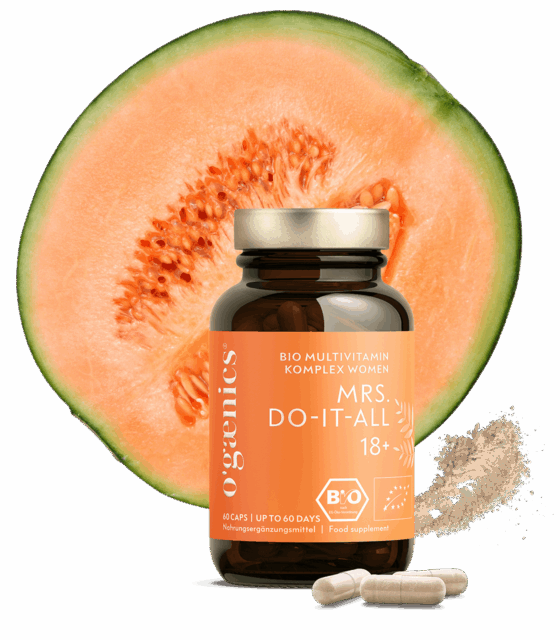
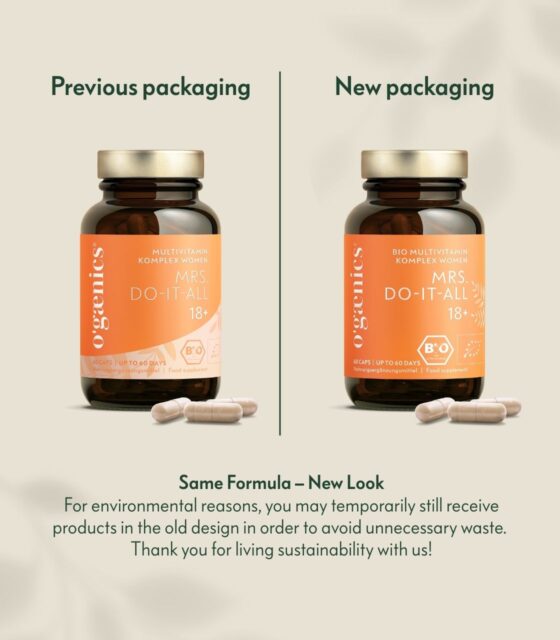
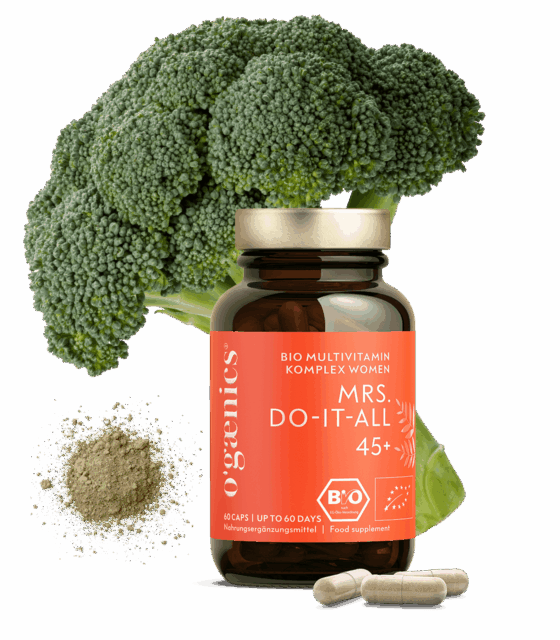
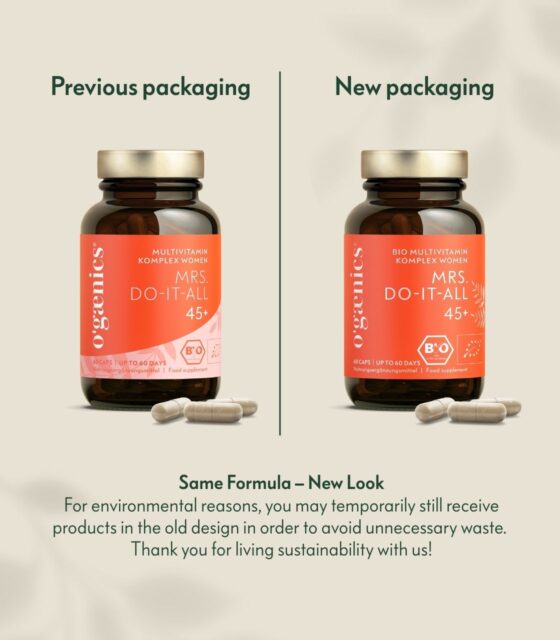

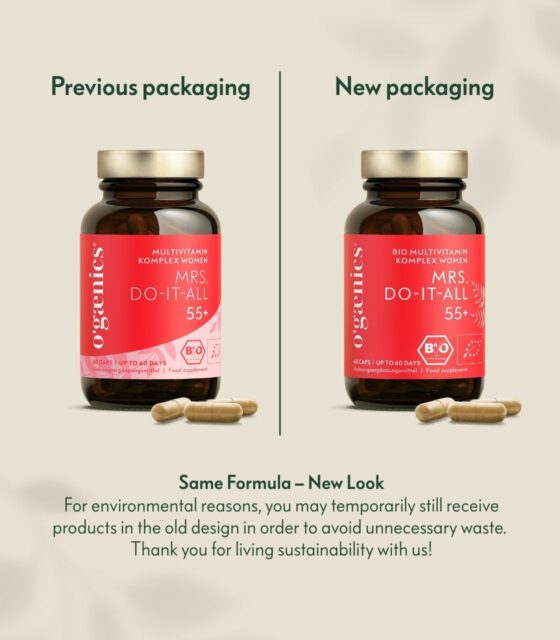
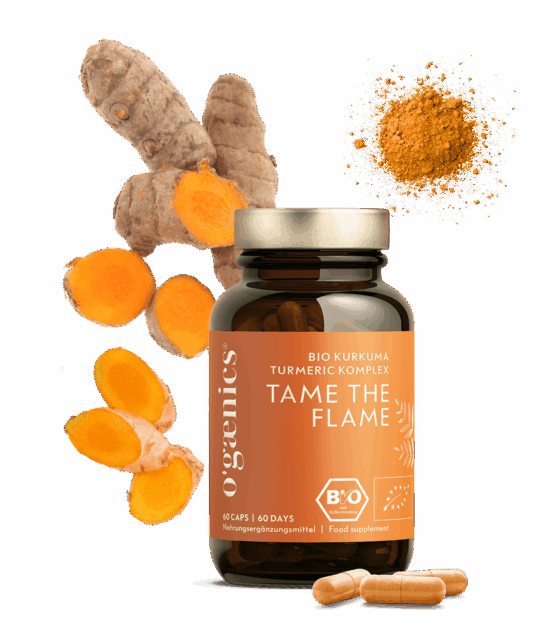
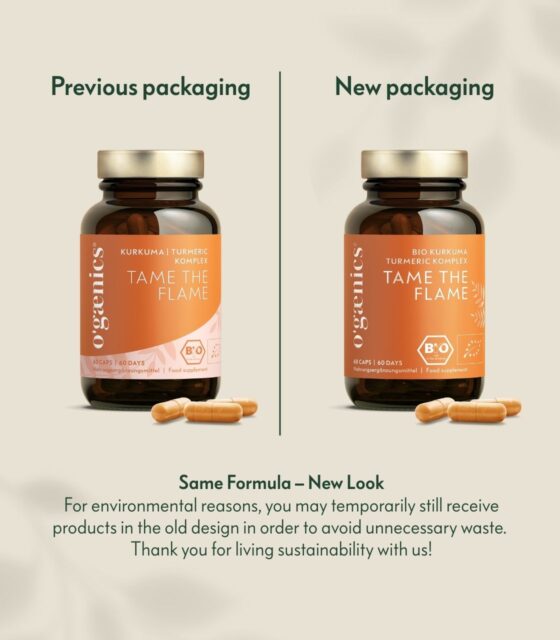
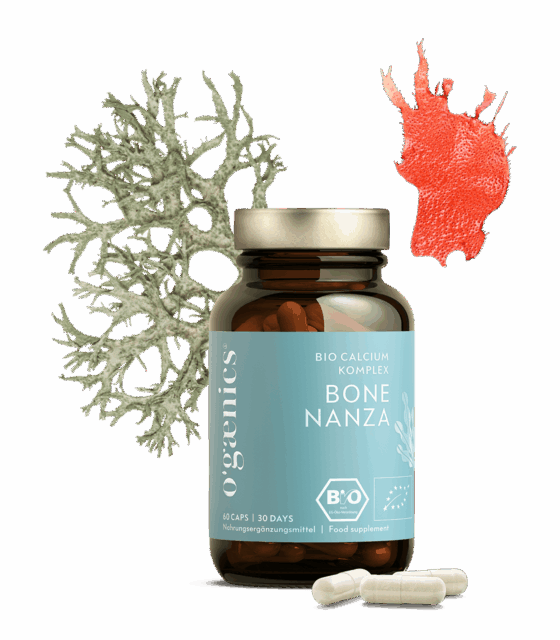

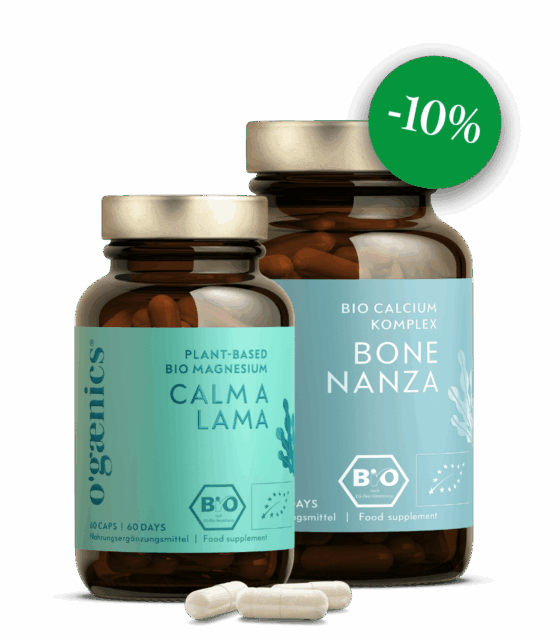

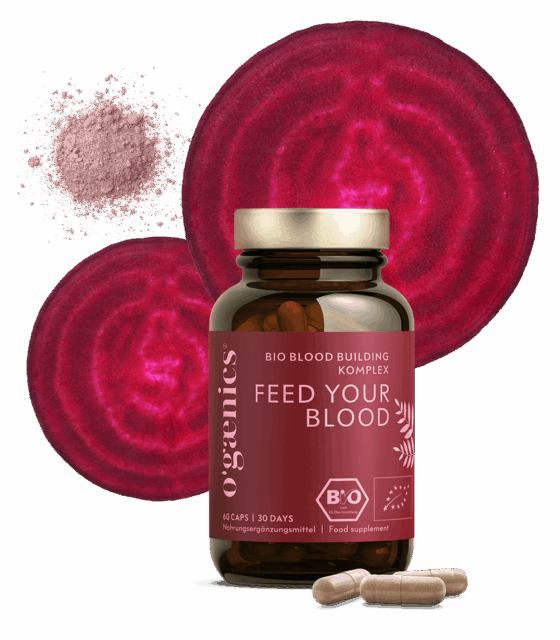

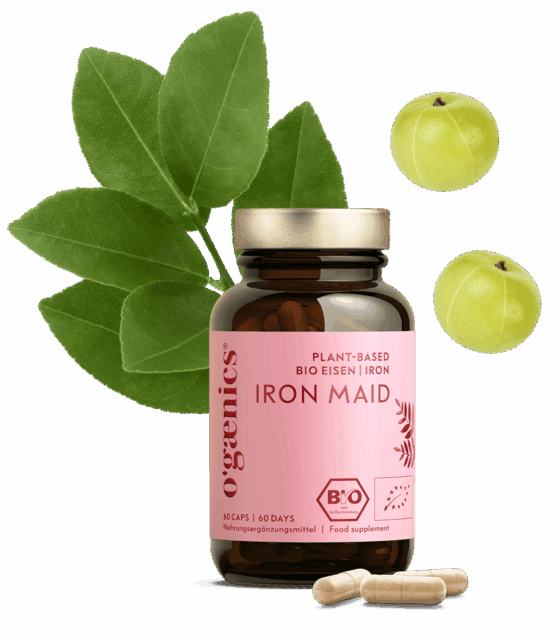

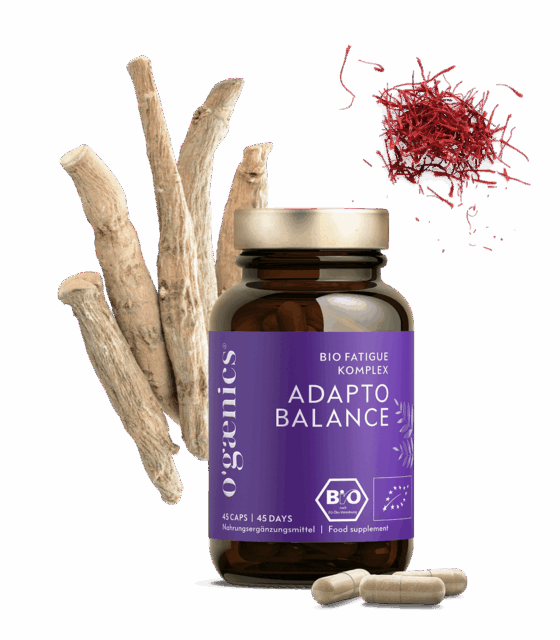


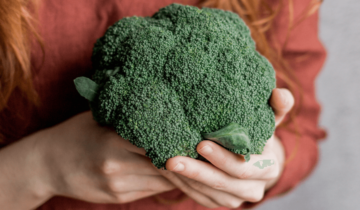

 No products in the cart.
No products in the cart.